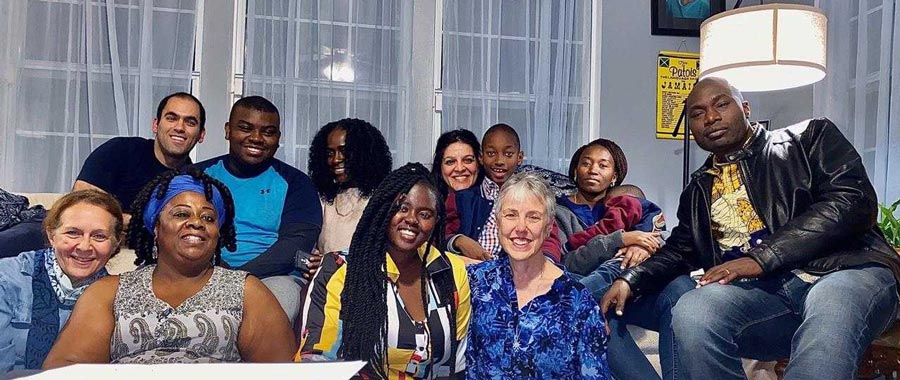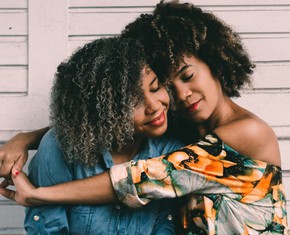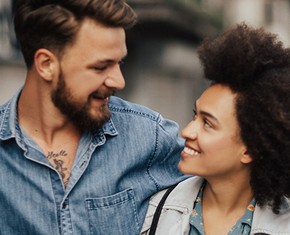The views expressed in our content reflect individual perspectives and do not represent the authoritative views of the Baha'i Faith.
My friend Susan Troxel’s journey to form close bonds of friendships with people of color led her to new realizations about her role in furthering racial healing in America.
Susan felt especially motivated to nurture and encourage people of African descent due to the many years of oppression that our community has faced and the Baha’i principle of the oneness of all humanity. Abdu’l-Baha once addressed a Baha’i of African descent in the following manner:
O thou who art pure in heart, sanctified in spirit, peerless in character, beauteous in face! Thy photograph hath been received revealing thy physical frame in the utmost grace and the best appearance. Thou art dark in countenance and bright in character. Thou art like unto the pupil of the eye which is dark in colour, yet it is the fount of light and the revealer of the contingent world. – Abdu’l-Baha, Selections From the Writings of Abdu’l-Baha, p. 114.
The pupil is “the fount of light”: we cannot see without it. So, it wasn’t until Susan spent time with and listened to the people Abdu’l-Baha referred to as the pupil of the eye that she gained insight into a world of oppression and got a glimpse of a reality that her privilege had blinded her from:
I actually think it was around the time that Trayvon Martin was killed and I went to a fireside [an informal Baha’i meeting] at my close friend’s house. I heard African American women sharing their pain and their fear every time their son left the house, wondering if he would come back alive. It made a very deep impression on me both because as a white person, I was being trusted enough … to bear witness to the pain of these mothers, and also because it moved my understanding forward in getting it about some of the depth of injustice – racial injustice – that we’re suffering from in this country.
Through my continued deep friendship with the woman that hosted that fireside, I’ve come to learn a lot that I didn’t understand about racial injustice and systematized racism that is baked into our society in this country, how all of us are diseased by it, the degree of trauma that is passed down through the generations, and how … white people [are often oblivious] to their position of privilege and the suffering of their brothers and sisters. So I think that was kind of a turning point for me where rather than just a principle that I loved and to a certain extent had always tried to practice in my life, it kind of booted things to a new level to me where I felt an inner imperative from my heart and soul to see what part I could play in racial healing.
Susan referred to the Baha’i writings to see the specific steps that she, as a white woman, could undertake to play her part in racial healing. She found this passage that the Guardian of the Baha’i Faith, Shoghi Effendi, wrote in 1938, advising both white and black people about how to begin resolving America’s “most challenging issue” of racism:
Let the white make a supreme effort in their resolve to contribute their share to the solution of this problem, to abandon once for all their usually inherent and at times subconscious sense of superiority, to correct their tendency towards revealing a patronizing attitude towards the members of the other race, to persuade them through their intimate, spontaneous and informal association with them of the genuineness of their friendship and the sincerity of their intentions, and to master their impatience of any lack of responsiveness on the part of a people who have received, for so long a period, such grievous and slow-healing wounds.
Let the Negroes, through a corresponding effort on their part, show by every means in their power the warmth of their response, their readiness to forget the past, and their ability to wipe out every trace of suspicion that may still linger in their hearts and minds. Let neither think that the solution of so vast a problem is a matter that exclusively concerns the other. Let neither think that such a problem can either easily or immediately be resolved. – Shoghi Effendi, The Advent of Divine Justice, p. 39.
Susan shared that she goes back to that passage from the Baha’i writings over and over again:
I’ve really thought a lot about what does a “usually inherent and at times subconscious sense of superiority” mean? I’ve come to understand that inherent kind of means baked in. [So] when I examine myself and find myself reacting in ways that reflect a sense of superiority, then rather than be paralyzed by guilt or despair, my job is to accept that it’s the function of the society that I grew up in and… my job is to strive every day to overcome that sense of superiority.
She then reflected on the superior attitudes that she and her white counterparts often display in society:
A close friend of color recently described to me entering a largely white spiritual gathering and feeling “invisible” – and I know from other friends that this was not a unique experience. What does this mean? What does it signify in the way white folks are seeing, acknowledging, valuing, our friends of color? What vestiges of slavery may still be affecting our perception of people of color… did one have to not see the humans toiling in the fields and suffering in enslavement, while benefiting economically from their labor, in order to escape the moral hypocrisy of the entire system? How am I still affected by this pattern, so baked into our society, in the present day? Why am I surprised to learn that the nice young man of color with whom I was chatting at my granddaughter’s birthday party turns out to be a physician? Why do so many black folks have the experience of whites expecting them to be the ones to move aside when passing on the sidewalk?
Susan didn’t end her musings there. She began to educate herself, because she realized that as long as she remained ignorant, she would engage in a form of oppression. The Baha’i teachings discuss the implications of the perpetuation of ignorance:
The perpetuation of ignorance … is a most grievous form of oppression; it reinforces the many walls of prejudice that stand as barriers to the realization of the oneness of humankind …. Access to knowledge is the right of every human being, and participation in its generation, application and diffusion a responsibility that all must shoulder in the great enterprise of building a prosperous world civilization – each individual according to his or her talents and abilities. – The Universal House of Justice, Letter to the Baha’is of the World, April, 2010.
Susan said:
I’ve learned a great deal more about the system of slavery, so woven into the fabric of this country, over the past few years. I’ve read slave narratives, been educated by my friends, and spent a great deal of time at the National Museum of African American History and Culture. I’ve come to understand that the traumas of the slavery system have been passed down through the generations, and are still affecting our brothers and sisters of color, as well as white folks, in just about every way. Almost every person of color I know struggles mightily with all kinds of traumas that the Guardian [of the Baha’i Faith] referenced when he wrote that the whites need to “master their impatience of any lack of responsiveness on the part of a people who have received, for so long a period, such grievous and slow-healing wounds.”
As the Universal House of Justice wrote, every individual can contribute to building a prosperous world civilization according to their own talents and abilities. Susan responded:
I realized I’m not a great orator, my style is quieter than others who can speak very passionately and eloquently in public spaces, but I have been on a journey since then of finding my own way to contribute to the promotion of racial justice and true unity.
In the third and final article in this series, Susan expresses her gratitude for African Americans and shares why she believes more white people could benefit, as she has, from diverse friendships.
















Comments
Sign in or create an account
Continue with Googleor